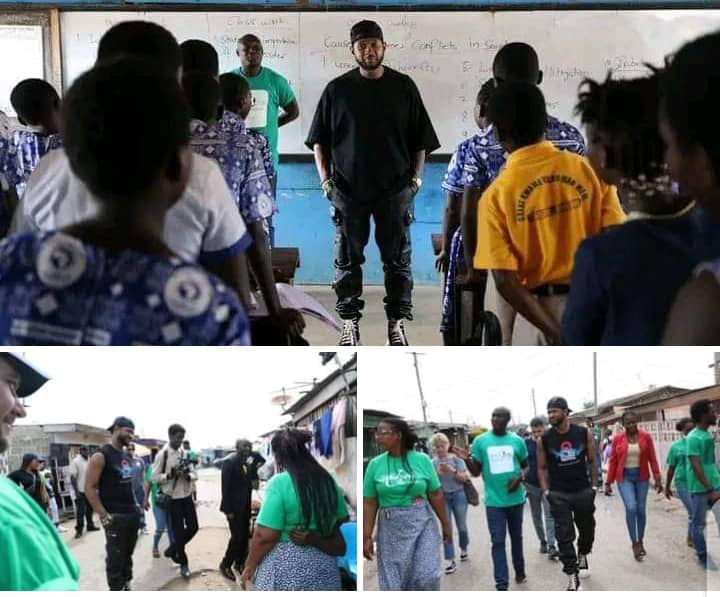The terrific American RnB sensational, Usher Raymond, on Friday received a rousing welcome at the Cape Coast Castle in commemoration of the Global Citizen Festival’s 10th anniversary celebration.
The Festival, scheduled for Saturday, September 24, at the Black Star Square, in Accra, seeks to distribute $41.4 billion to impact 1.15 billion lives in its charter to end extreme poverty.
Scores gathered in front of the Castle as others claimed up buildings to catch a glimpse of the music legend who has won a total of 333 awards and 618 nomination’s visit to Ghana for the first time.
Amazed by the turn of events, the multiple award winner took turns to chat and snap photographs with his fans.

Before his historic visit to the ancient city, the talented singer visited some schools and toured the Chorkor community in Accra, the national capital, alongside SZA , an English rapper, interacted with students and Chorkor residents in Accra as the people cheered on.
The American RnB icon is billed to perform alongside SZA, Stormzy and H.E.R both UK based and Gyakie, Sarkodie, and Stonebwoy all Ghanaian musicians.
He was ushered into the Castle through the “door of no return” which was the last door slaves went through to cross the Atlantic Ocean.
The Castle was used to hold enslaved Africans before they were loaded into ships and sold in the Americas and the Caribbean.

The historical monument has hosted numerous international celebrities and political figures, including former President of America, Barrack Obama and First Lady, Michelle Obama and Marian Shields Robinson, mother of Michelle Obama, and son, Craig Robinson, a basketball executive.
Also, former US First Lady Melania Trump visited on her trip to Africa, Gillian White, Actress, and wife of actor, Jai White, a Hollywood celebrity, and children among others.
A source at the Castle said: “Like Steve Harvey and host of others in the Diaspora shed tears upon visiting the Cape Coast castle, the RnB artist was heavy-hearted after being taken on a tour in the dungeons of the Castle and was briefed of the brutal act of the trans-Atlantic slave trade and how the activity was carried out.
“The “dungeon is something that people should see and experience” and “what happened so many years ago is a tragedy,” he is quoted to have said.
The Global Citizen’s Festival has grown to be one of the world’s largest movements of action-takers and impact-makers who are calling for urgent change to protect and uplift the World’s most vulnerable.

They take action by posting, tweeting, messaging, voting, signing, and calling to inspire those who can make things happen — government leaders, businesses, philanthropists, artists, and citizens to collectively improve lives.
GNA